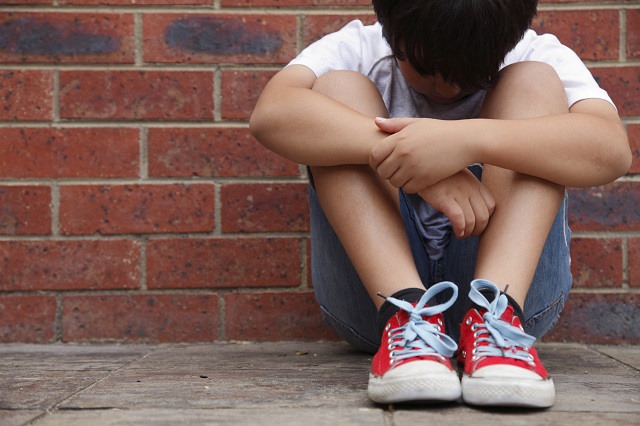No parent wants to imagine that their child is being bullied or even worse, that their child IS a bully. Yet, among adolescents and children, the phenomenon of bullying is widespread across the nation. The effects of bullying are undeniably harmful, typically leading to long-term repercussions that last well into adulthood. However, learning how to recognise the signs that your child is being bullied (or is a bully) can be the first step to resolving the problem.
Signs your child is being bullied
From not wanting to go to school to unexplained marks on their bodies, bullying can present itself in a number of ways. If in doubt, ask yourself the below questions.
- Does your child seem reluctant to go to school? Every kid has the right of having an off day, and they’re not always too enthusiastic about the idea of going to school. The problem arises when these days start happening with a higher frequency and they begin to go to extreme measures to avoid school.
- Have they acquired a number of unexplained marks, bites or wounds? We all know children play rough and can get a little carried away but, if your child starts showing a more than average number of bruises (and they’re making a particular effort to conceal them), it may be time to sit down and have a chat.
- Have you noticed a change in behaviour? Ongoing bullying can cause lasting changes in a child’s behaviour. If you notice any signs that your child is depressed, acting up with family or friends, have difficulty eating, sleeping and being social, bullying could potentially be the cause.
- Are they ‘losing’ their possessions? If a bully envies another child’s possessions, the easy answer could be just to take it. Other times, where jealousy is not a factor, items like school books or uniforms are destroyed in order to embarrass a victim. If your child appears to be losing things more than usual or their prized possessions appear damaged, it could be a sign of bullying.
Ongoing bullying has its roots in communication with children. More often than not, children will not seek out an adult because they fear this will make their situation more difficult. Others feel ashamed for being unable to tackle the problem alone. A watchful eye and open lines of communication can help you spot the initial signs that your child is being bullied. Then you can take the appropriate steps to resolve the issue. Let them know you support them and there is nothing to be embarrassed about.
Signs your child is a bully
No parent wants to think of their child as a bully, partly because of widespread ideas about the home a bully must come from. Most assume that a bully comes from an aggressive, negligent or less than loving household, but this is not always the case. Unfortunately, sometimes strong character traits simply go unchecked and can cause children to become destructive and blind to the pain of others. This doesn’t mean your child is inherently bad and on a road with no return. There’s always an opportunity to steer a child back onto a kinder path if you recognise the signs.
- Their actions express a need to always be dominant and in control. Does your child always have to be the leader of the pack? If your child uses anger or intimidation to retain this control and becomes aggressive if they don’t get their way, this could be a sign that your child is a bully.
- They become aggressive and lash out when angry or embarrassed. When people (not just children) can’t control strong emotions, they tend to lash out and spread the misery around. In places like school, where they may target a weaker individual than themselves, this can make them a bully.
- They show an inability to take responsibility for their actions. Bullys typically blame their actions and the resulting consequences on others. Even when they’re confronted with their bullying behaviour many lay blame with the victim for the resulting punishment, condemning them for ‘telling’ rather than seeing fault with their own actions.
- They show a lack of empathy when others are in pain. While some children are definitely more sensitive than others, if your child shows a repetitive unwillingness to show compassion for the pain of others, it could be a sign that they have the potential to be a bully.
- You don’t approve of their friends. Bullies tend to hang out with other bullies. We’re not quite as blinded by the actions of other children as we are our own. If you get the impression that their friends are the type to bully other children, then chances are your child will join the party in favour of being their next victim.
Finding out your child is a bully doesn’t automatically transform you into a bad parent. There are plenty of reasons why a child or teenager could be acting up. The important thing is to take proactive steps to pinpoint what is triggering this behaviour and work on reversing it. Let them know that actions have consequences and make them aware of the impact that they could be having on the lives of others.
Ask for help
If you have any doubts about your child’s behaviour and you think they are being bullied, do not hesitate in contacting the school or their teacher. Collaboration and communication with those in the school environment can make a difference to ending the torment.
For more on anti-bullying supports for both parents and children, click here.
maternity & infant
Originally posted 2017-09-19 10:13:10.
